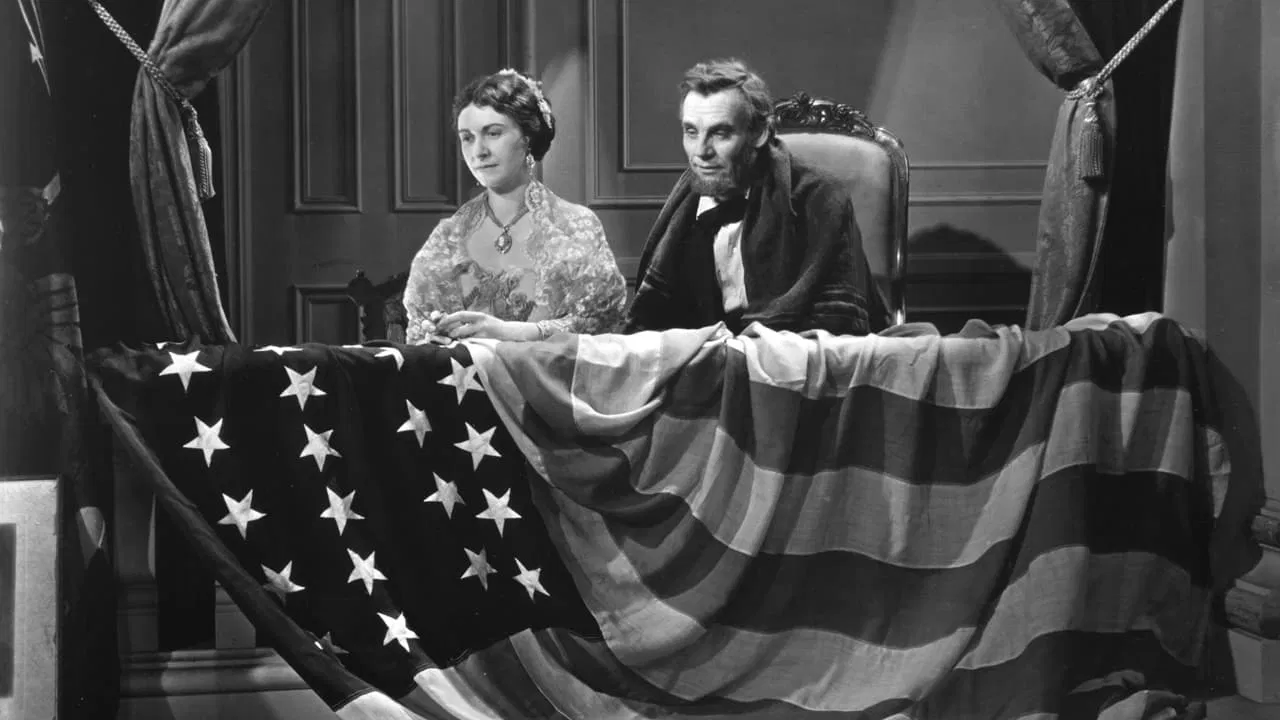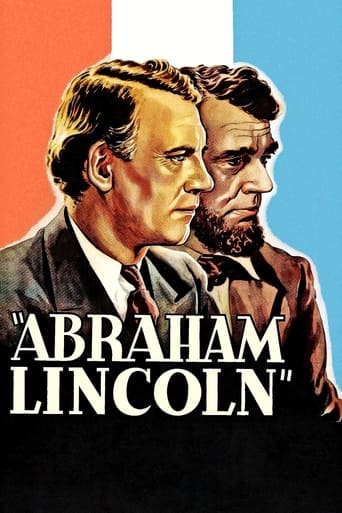

SERIOUSLY. This is what the crap Hollywood still puts out?
... View MoreAmateur movie with Big budget
... View MoreA Disappointing Continuation
... View MoreBy the time the dramatic fireworks start popping off, each one feels earned.
... View MoreThe First Thing one Notices as this First Talkie by a Pioneer Silent Film Director Unspools is the Opening Credits that Ends with..."Personally Directed by D.W. Griffith".As Opposed to What? Directed by Someone who Never Showed Up. Oh the Ego. Anyway, the Next Thing that Demands Attention is the Lost Sound of the First Few Scenes. Those are Shown with newly Added Subtitles akin to "Closed Captions for the Hard of Hearing". This is Significant because these are Scenes that Show Slave Ships returning from Africa and have Lines of Extremely Racist and Cruel Dialog and Shots of African Slaves being Treated Worse than Animals.These Powerful Presentations are Not Diminished that Much by Lack of Sound. There are Subtitles that Convey the Inhumanity with Lines about the Deaths of the Captured as Ledger Balancing.Than this Awkward Movie attempts to Portray Lincoln's Life, it seems, from Literally Birth to Death. So We are given Scenes inside the Famous Log Cabin of a Newborn Lincoln Wrapped in Swaddling Clothes. The Idea of Lincoln as Savior is Never Abandon as the Film rapidly makes its way through Lincoln's early Romance and Tragic Death of Ann Rutledge (Una Merkel) and Abe's Devastating Grief. In the Film He Immediately Courts Mary Todd (later to add some comedy relief) and Thwarts Stephen Douglas. The Lincoln/Douglas Debates are Reduced to Ludicrous Uttering of a Word or Two from Each Participant.The Historical Accuracy of what follows is best Left to Historians (real life Historians, not Film Historians). As a Movie it is Obvious Griffith was either Totally Inept or Unable to Understand the New Sound Technology. The Dialog Scenes Slog even for 1930's Standards and at times the Movie Feels like it is in Slow Motion. Ironically, it becomes a Biography of "Sound Bites".As Entertainment it is Painfully Dated, although there are some Visual Treats. William Cameron Menzies Production Design is Excellent. Walter Huston is Iconic and Manages the Part with Ease and Verisimilitude.Overall, Interesting Enough to Warrant Attention and is Worth a Watch for its Place in Film History and as an Artifact of History on Film
... View MoreA most impressive film in its tinted and toned Grapevine Video DVD edition. Don't bother to watch the movie in other formats. Without color, the movie just looks like a series of tableaux that cover only some of the high spots (including the assassination) and a lot of the duller episodes in Lincoln's career. Without color, most of the acting is as dull as the dialogue and some of it is downright bad. Without color, James Bradbury Sr cuts a ridiculous figure as General Scott. Without color, Huston plays Lincoln as a cracker-barrel philosopher rather than as a figure of dignity. Without color, the direction is dull, aside from one or two touches (the sweeping tracking shots at the film's beginning and close, Lincoln silhouetted as he descends a flight of stairs). Without color, it's obvious that Griffith uses some old Birth of a Nation action footage in the Civil War sequences. Without color, it seems obvious the film was produced on a rather limited budget. Worst of all, deprived of its original color stock, the sound recording comes over very poorly. (On the colored stock, the sound is clear as a bell, except for an occasional muffle here and there). Worst of all, without color, the whole film emerges as a dated museum piece.In the color edition, Huston makes a fine stab at Lincoln. In fact, in my opinion, Huston's is far the best of the many Lincoln portrayals on the screen. He brings a rich humanity, as well as both warmth and dignity to the role. True, aside from Una Merkel (whose role is very small, despite her co-star billing), E. Alyn Warren (who plays both Stephen Douglas AND General Ulysses Grant), Ian Keith (Booth), and Hobart Bosworth (who brings both drama and pathos to his rounded portrait of Lee), few of the other players make much of an impression. (Young Gordon Thorpe is incredibly bad, but fortunately his role is as small as his height).In all, a must-see movie – provided you watch Grapevine's superb color print! If not, give the movie a miss. You'll loath every boring black and white, hard-to-hear minute of it!
... View MoreAfter seeing the modern movie versions of Abe Lincoln I was curious to see what this one was like. Personally when it comes to movies portraying historical characters I'm most concerned with the facts then with anything else. In that regard the movie didn't seem to run away with an artistic license , but did manage to focus on what Lincoln was trying to achieve " to preserve the union". A line repeated several times through out the the movie. The movie was more like a snap-shot of the life of Lincoln piecing together highlights of Lincoln's life. And maybe it was better this way , filling in the gaps with fiction doesn't serve history very well. Sure you cant be 100% factual when trying to make a movie but have some kind integrity. The film is defiantly a product of its time- film quality , acting , but if you can over look that it isn't that terrible.
... View MoreIf Griffith had stuck to Lincoln's personal life, this could have been an interesting, amusing, and occasionally insightful film. Griffith gives us a multi-layered and largely accurate portrait of Lincoln the man. We see the ungainly country lawyer, countrified in speech and manner, often serious, even melancholy, but with a rare ability to find humor in the most unlikely places and to laugh even at himself. We see Lincoln the inveterate story-teller, the insomniac, the doting father, the determined commander-in-chief the patient husband. If this had been the whole of the film, it would have been easy to overlook its painfully outdated style and to forgive its frequent omissions and exaggerations as poetic license.Unfortunately, the film necessarily includes Lincoln's political life, and here it moves from poetic license to outright falsehood. Slavery was the central issue of Lincoln's political career, a fact that Griffith tries to obscure, going so far as to turn Lincoln's pivotal 'House Divided' speech into an argument against secession. This is particularly ironic since it was really Lincoln's battle cry against encroaching slavery. When South Carolinians seceded two years later, this was the speech they pointed to as proof that when Lincoln took office, "the slaveholding States will no longer have the power of self-government ... and the Federal Government will have become their enemy." During Lincoln's presidency, the question of slavery occupied much of his time and attention, yet again Griffith chooses to ignore it. His Lincoln spends more time admiring the courage of Confederate soldiers than worrying about slavery. Even the Emancipation Proclamation gets only the briefest attention. Lincoln reads a line from the document, signs it, and says, "Well, gentlemen, it is done." It's oddly dismissive, coming from a man who considered emancipation the central act of his presidency and the most meaningful act of his life.Denied his opposition to slavery and concomitant commitment to democracy and the inalienable rights of man, Lincoln is reduced to endlessly repeating, "The Union must be preserved." Why it must be preserved is left to the audience's imagination. The film never gives us the slightest clue.
... View More